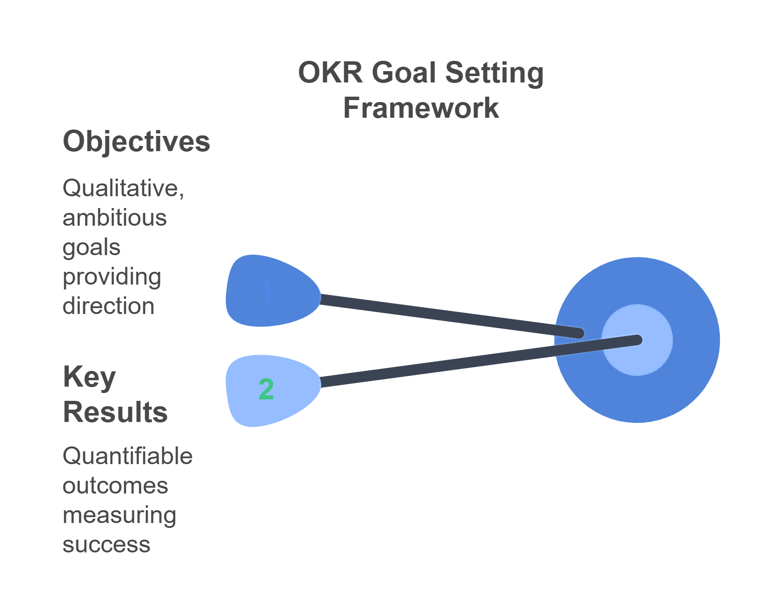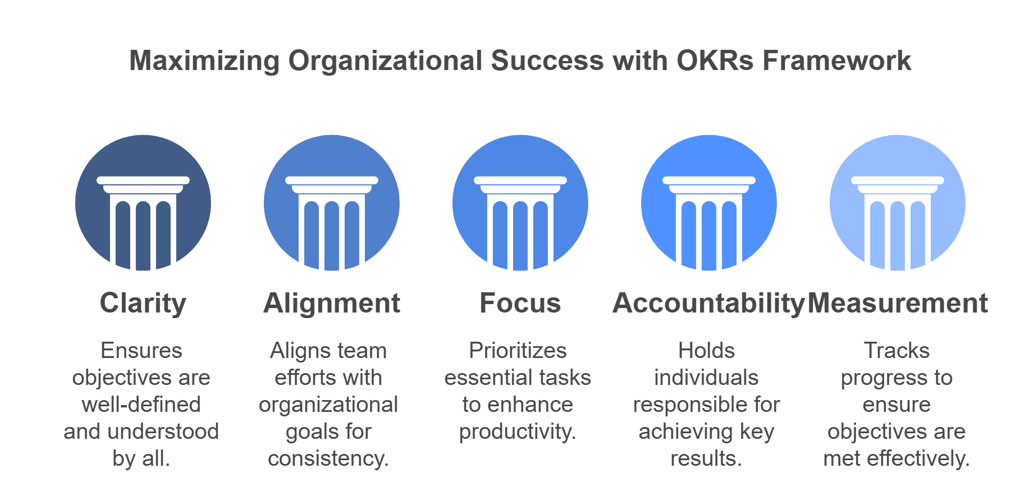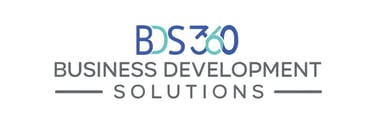

What if there was a way to dramatically increase focus, drive data-driven decisions, and improve communication across your entire organization? We've discovered that OKRs aren't just a goal-setting tool; they're a catalyst for transformative growth.
OKR and it's remarkable impact
OKR, which stands for Objectives and Key Results, is a goal-setting framework that helps organizations define and track their objectives and the outcomes that measure their success. This methodology is designed to foster alignment and engagement around measurable goals, enabling teams and individuals to focus on what truly matters.
What is OKR?
Benefits of OKRs:
Alignment: OKRs help ensure that everyone in the organization is working towards the same goals, fostering collaboration and reducing silos.
Focus: By defining clear objectives, teams can prioritize their efforts and concentrate on what is most important.
Transparency: OKRs promote visibility across the organization, allowing everyone to understand how their work contributes to the overall goals.
Engagement: When employees are involved in setting their own OKRs, they are more likely to feel a sense of ownership and commitment to achieving them.
Adaptability: OKRs can be adjusted as needed, allowing organizations to remain agile and responsive to changing circumstances.


Recent research reveals that 93% of employees don’t understand their company’s strategy, creating a staggering disconnect between vision and execution.
Why Large Organizations Need OKRs?
Most strategies fail—not because they are flawed, but because they are poorly executed. In fact, studies show that 67% of well-formulated strategies fail due to poor execution. While organizations invest significant time and resources in crafting ambitious plans, they often lack the mechanisms to align teams and translate these strategies into measurable outcomes.
We are happy to hear from you, Please contact Said at:
email: said@bds360.biz
Mobile: +968 7721 8887
© Copyright 2025 BDS 360 - Business Development Solutions. All Rights Reserved. Website design: www.bds360.biz
Contact us:


